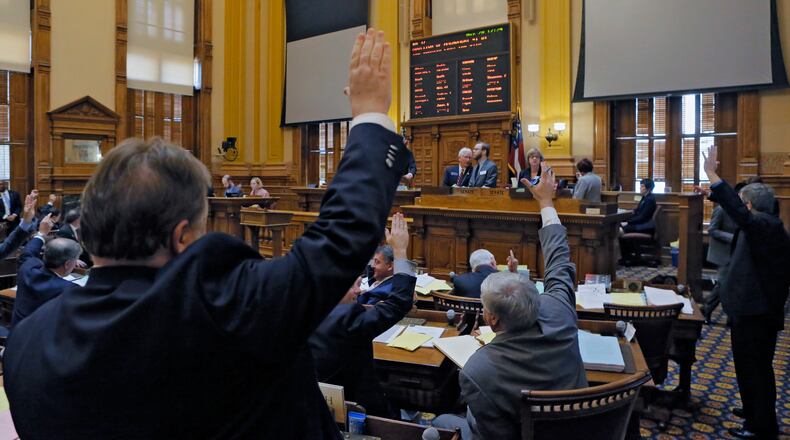State lawmakers will decide on key bills affecting DeKalb County on Thursday, including proposals to replace the county’s Board of Ethics, focus a sales tax on road repairs, review the county’s form of government and create term limits for Stonecrest’s mayor.
These DeKalb-specific measures are among dozens of bills under review in the closing hours of this year's legislative session.
Any bill that doesn’t win approval by both the state House and Senate can’t become law this year.
The Sine Die 2017 preview edition of Georgia Legislative Week in Review with Aaron Gould Sheinin, Kristina Torres and the Phrase of the Week by James Salzer. Video by Bob Andres / bandres@ajc.com
Here’s a look at four DeKalb proposals being debated at the Georgia Capitol:
- Ethics: The state Senate will consider replacing the DeKalb Board of Ethics with members chosen by state legislators, according to Senate Bill 273. Most of the board's members are currently chosen by organizations independent of government, such as the DeKalb Bar Association and local colleges.
- Sales tax: If voters approve raising sales taxes to fund infrastructure, the money could only be spent on roads, transportation and public safety projects, according to Senate Bill 156. The legislation prevents the county from spending sales tax proceeds to build a new government administration office.
- Charter review: DeKalb's unique form of government would be studied and possibly changed in the future, according to Senate Bill 246. The measure calls for a Charter Review Commission to evaluate the county's structure, which has a CEO in charge of the executive branch. Many other counties hire a professional manager to oversee government operations.
- Stonecrest: The mayor of the new city of Stonecrest would be limited to serving two consecutive terms, according to House Bill 600. In addition, the legislation eliminates the mayor's ability to vote on issues considered by the five-person City Council, except in the event of a tie. The bill no longer redraws City Council district borders, as it did when first introduced.
About the Author
Keep Reading
The Latest
Featured

